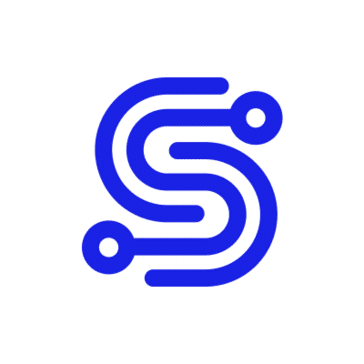Proxy Servers for Scraper API

Proxy servers for use in Scraper API. Unlimited traffic. Supported protocols: HTTP, HTTPS, SOCKS 4, SOCKS 5, UDP. Rotating proxies with pay-per-request. Reliable and stable connection with 99.9% uptime. Fast speed. Technical support 24/7.
Price: 59
Price Currency: USD
Operating System: Windows, macOS, iOS, Android, Linux, Ubuntu
Application Category: UtilitiesApplication
5
What is Scraper API?
Scraper API is a specialized software interface that enables the automated collection of data from various web sources. Its primary purpose is to simplify the complex process of web scraping, allowing users to focus on data analysis rather than the intricacies of HTML parsing, CAPTCHA solving, or request routing. In essence, Scraper API serves as a bridge between your application and the target website, making HTTP requests and returning clean, structured data for easy analysis.
Key Features of Scraper API:
- Request Routing: Automatically routes your requests through various IPs to avoid detection and blocking.
- CAPTCHA Handling: Automatically solves CAPTCHAs and browser challenges.
- Concurrency: Supports high-concurrency, allowing multiple scraping tasks simultaneously.
- Content Parsing: Provides structured data in JSON, XML, or other formats.
What is Scraper API Used for and How Does it Work?
Uses of Scraper API
- Data Analysis: Collecting large sets of data for business intelligence and statistical analysis.
- Content Aggregation: Aggregating data and information from multiple sources for applications like news apps.
- Competitive Monitoring: Regularly fetching data to monitor competitor prices, features, and availability.
- Sentiment Analysis: Scraping social media or forums for public sentiment on products, services, or trends.
- SEO Monitoring: Fetching keyword ranks, backlinks, and other SEO metrics for analysis.
Working Mechanism
- Request Initialization: Your application initiates an HTTP request to the Scraper API with specified parameters.
- Proxy Routing: Scraper API routes the request through its pool of proxy servers to ensure successful data retrieval.
- CAPTCHA and Challenges: Any CAPTCHAs or browser challenges encountered are automatically solved.
- Data Extraction: The data is extracted from the web page’s HTML or JSON structure.
- Data Return: The extracted data is returned to your application in your desired format.
Why Do You Need a Proxy for Scraper API?
The role of a proxy server in web scraping activities through Scraper API cannot be overstated. Here’s why:
- Anonymity: A proxy server masks your IP address, ensuring anonymity and reducing the risk of IP blocking.
- Rate Limiting: Bypass rate limitations set by target websites.
- Geographical Restrictions: Overcome geo-restrictions by using IPs from different regions.
- Load Balancing: Distribute requests across multiple servers to ensure smooth and efficient scraping.
- Redundancy: Ensure uninterrupted scraping by rerouting through another proxy if one fails.
Advantages of Using a Proxy with Scraper API
| Advantages | Explanation |
|---|---|
| Increased Success Rate | Proxy servers improve the chances of successfully scraping data by mimicking real user behavior. |
| Enhanced Speed | Concurrently route through multiple proxies to optimize scraping speed. |
| Better Data Accuracy | Proxies enable you to scrape from multiple sources in parallel, ensuring more accurate data. |
| Reduced Risk of Blacklisting | Rotating IPs make it difficult for websites to detect and block your scraping activities. |
What are the Cons of Using Free Proxies for Scraper API
- Unreliable: Free proxies are often unstable and can suddenly become unavailable.
- Low Speed: Shared by multiple users, leading to bandwidth congestion and low speed.
- Limited Geographical Options: Rarely offer a wide range of IP addresses from different regions.
- Security Risks: Susceptible to data breaches and malicious activities.
- No Support: Lack of customer support for any issues you may encounter.
What Are the Best Proxies for Scraper API?
When considering a proxy service for Scraper API, consider the following types:
- Data Center Proxies: Highly stable and fast but easily detectable. Ideal for simple tasks.
- Residential Proxies: Emulate real-user behavior and are less likely to be blocked. Suitable for complex scraping tasks.
- Mobile Proxies: These use IP addresses assigned by mobile operators and are the least likely to be detected.
- Rotating Proxies: Automatically change IP addresses to minimize detection risks.
For efficient and seamless web scraping activities, OneProxy provides a wide range of data center proxy servers that offer high speed, stability, and security.
How to Configure a Proxy Server for Scraper API?
Configuring a proxy server like OneProxy for Scraper API involves the following steps:
- Purchase Proxy: Start by acquiring a suitable proxy package from OneProxy.
- Proxy Credentials: You will receive proxy IP, port, username, and password.
- Scraper API Configuration: Incorporate these details into the Scraper API settings.
- HTTP Request: Modify the API request to include the proxy information.
- Code Libraries: If using libraries like Python’s
requests, include the proxy in the session settings.
- Test Configuration: Run a test scrape to verify the proxy setup.
- Start Scraping: Once verified, you can begin your web scraping activities.
By following these steps, you can harness the full capabilities of Scraper API while enjoying the enhanced functionality and security that OneProxy’s data center proxy servers provide.













